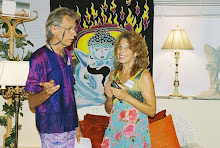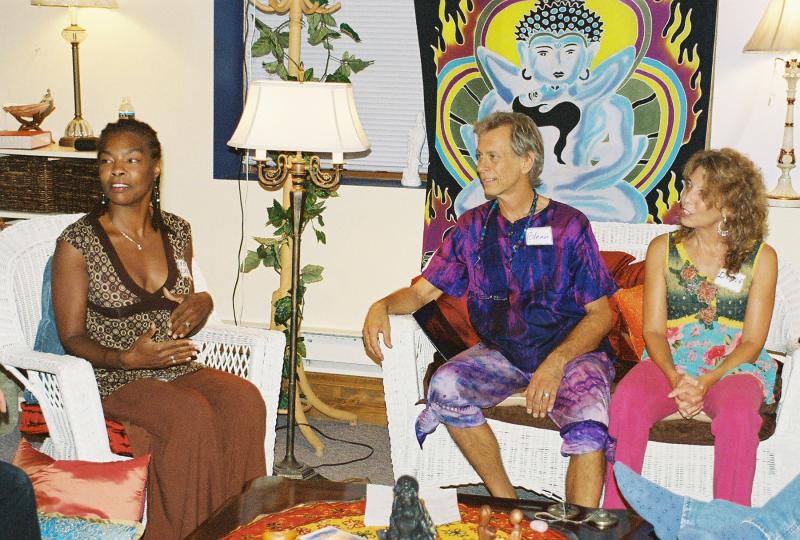 What is Tantra?
What is Tantra?Translated from Sanskrit, the word Tantra means "to weave" or "expand", and is a practice of accepting the highs and lows of life (and love), and weaving together the seeming opposites of spirit/body, good/bad, and even birth and death.
Moreover, Tantra is a physically-based spiritual path that accepts and celebrates the body as a temple. And yes, that includes sexuality. Tantra understands that the very energy of Life is sexual and can be used as a doorway to the sacred.
So what does any of this have to do with the triple-tragedy in Sendai?
I received a letter late last night from a friend of a friend, a young American woman who was teaching English in Sendai, and her account of the patience and tenderness with which she and her Japanese neighbors are living with one another stopped me in my tracks. She was literally describing what Tantrists call sacred space.
In the midst of all the chaos, grubbiness and hunger, she and her fellow survivors are living free from alienation and blaming. When one of their houses suddenly gets the water back on, owners put out a sign to announce to any and all who may need it. Doors are left unlocked and open (safer in all the aftershocks), and no one is concerned about looting. Strangers ask one another if everything is okay.
Life there has resumed a richness and a slowness that the elders describe as "the old days, when people used to help each other". The skies and roads are quiet, and the stars are abundant.
Big Energy
As I looked back and forth from my feeble attempt at a blog entry last night to her wonderful letter, I must admit, I had a moment of doubt. Was there anything I could possibly say about "connecting sex and spirit" that would have any relevancy in light of such profound changes as she described? Such BIG energy?
Oh.
Big energy changes everything.
Tantra acknowledges that sexuality might be about the only “big energy” we humans are aware of, or, at least, able to feel. The moments of birth and death could also be included, although being born and dying have a lot to do with sexuality.
We typically don't get much practical instruction and opportunity to become proficient at these major life occasions, much less "master" them. Nevertheless, we have all had our "moments", whether it was a wake or a birth, or losing ourselves in mind-blowing cosmic embrace. And many of us have experienced the peculiar still point that often opens up in time of catastrophe or sudden loss. None of us are strangers to Spirit.
"The" Practice
The simple perspective of noticing and honoring Spirit in all our human moments is a primary way that Tantra ushers in the same richness and slowness that my friend was describing in Sendai. As it turns out, our body-minds are geared for repose and compassion, but short of a major life intervention, we have to practice the dance of life.
It's always considered extraordinary when people come together to help each after a calamity, but what if this is our natural state of being? It's interesting to me that peace, love and tolerance is socially "weird". Similarly, why is it that our sexuality is commonly at odds with such peace and spirit?
For me, Tantra has been a way to thread together all these disparate aspects of life. The specific practice of moving the life force that I've always associated with sexuality to other parts of my body has been major. Practicing relaxation in high states of arousal in Tantra has also helped me stay calm in other circumstances of my "real" life, whether parenting or dealing with a difficult client.
In a full-blown catastrophe? We'll see.
PS - This Tuesday's Meetup Group in Prescott AZ, Connecting Love and Spirit, will be a chance for those of you in the area to learn specific exercises to connect with your own capacity to create the sacred in your life! http://www.meetup.com/The-Prescott-Tantra-Meetup-Group/
PPS - a copy of the letter from Sendai is here: http://www.keepandshare.com/doc/2678919/sendai-letter












